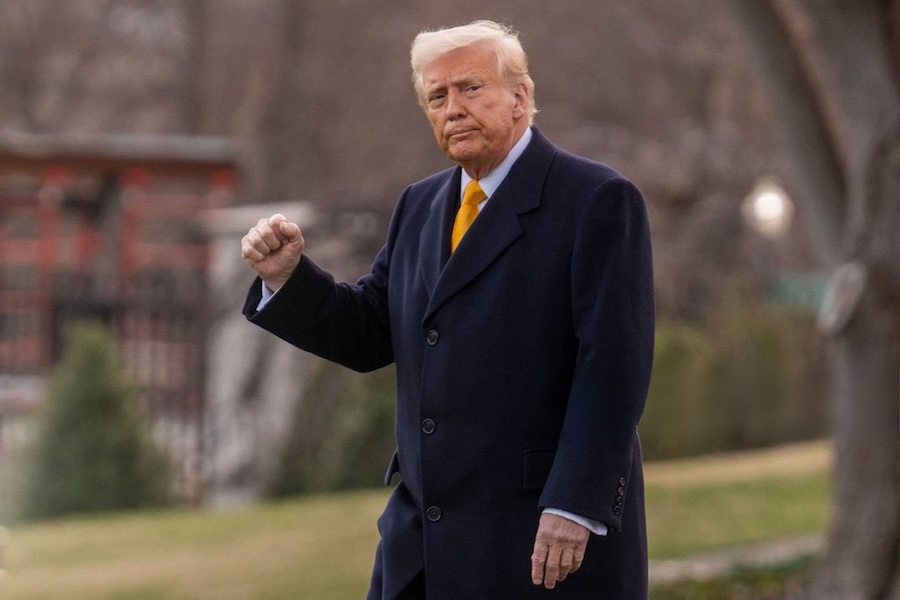Politics
General Motors To Expand Production In Red State Thanks To Trump’s Tariffs

General Motors plans to expand production at one its plants in Indiana after President Donald Trump placed tariffs on foreign-made vehicles.
As part of his “Liberation Day” tariffs on Wednesday evening, Trump announced a 25 percent tariff on all foreign-made cars in order to protect the auto industry from unbalanced foreign trade competition and encourage companies to relocate production to the United States. For example, the EU imposes 10 percent tariffs on the American auto industry compared to just 2.5 percent for European cars entering the United States.
In the hours following the president’s announcement, General Motors announced that they will be increasing production of light-duty trucks at the automaker’s Fort Wayne Assembly Plant in Indiana, according to a report from Reuters.
“The Detroit automaker may also add overtime days to the schedule, Plant Director Dennys Pimenta told employees in the webcast,” the outlet reported. “The moves will increase employment there with the hiring of several hundred temporary workers, according to a company source.”

Michigan auto workers rally in support of Trump just days before the 2024 presidential election on November 1
GM is far from the only automaker to shift production to the United States in response to Trump’s tariffs.
Stellantis, the parent company of Dodge, Jeep, and Chrysler, has announced it is bringing 1,500 jobs back to its Illinois plant from Canada. The automaker is set to produce a new mid-sized pickup in Illinois, while the next-generation Dodge Durango will be built at its Detroit complex. The announcement came just days after company executives met with President Trump.
The automaker plans to construct a new midsize pickup truck at its previously closed Belvidere, Illinois, facility, as detailed in an internal memo seen that was obtained by Bloomberg.
“These actions are part of our commitment to invest in our US operations to grow our auto production and manufacturing here,” Antonio Filosa, the head of Stellantis’ North American operations, stated in the memo. “We have shared with the UAW all these actions and our desire to work together to strengthen our great company.”
Outside the United States, British auto industry giant Rolls Royce recently told investors that they are scrambling to relocate some of its manufacturing operations to the United States.
In an earnings call earlier this month, Rolls Royce spoke to “rising protectionism” in response to Trump’s tariffs and confirmed that they were working on plans to lessen the effects. The company is also exploring ways to move some of its current manufacturing operations in Mexico, China and Canada to the United States, where it employs 6,000 workers across 11 sites.
One source told the outlet that the engineering giant was “tipping the balance towards the U.S.” in order to respond to tariffs. “If you are making something in countries like China then you’ll be looking at whether you can do it in the US instead,” they said.
While Rolls Royce is hoping to prioritize the relocation of plants in Mexico and Canada, they did not rule out the possibility of moving European operations across the Atlantic Ocean.
Trump’s tariff strategy has also received enthusiastic support from the United Auto Workers (UAW) union, which boasts more than 400,000 members spread mostly across the auto industry.
“We applaud the Trump administration for stepping up to end the free trade disaster that has devastated working class communities for decades. Ending the race to the bottom in the auto industry starts with fixing our broken trade deals, and the Trump administration has made history with today’s actions,” UAW President Fain said in a statement last week.
In an official statement, the UAW highlighted the devastating effects that “free trade” has had for their industry. “Corporations have been driving a non-stop race to the bottom by killing good blue-collar jobs in America to go exploit some poor worker in another country by paying poverty wages. Tariffs are a powerful tool in the toolbox for undoing the injustice of anti-worker trade deals,” the union said.
SUGGESTED VIDEOS FOR YOU
Democrat Rep. LOSES HIS MIND during UNHINGED screaming match on Fox!
Sen. Kennedy SPILLS THE BEANS on Biden’s $2 billion GIFT to Stacey Abrams!
Ex-FBI agent ADMITS THE TRUTH about Biden laptop during Jordan grilling!
“CHECKMATE”; What EVERYONE missed from Trump’s tariff launch!
Amy Klobuchar MELTS DOWN during fiery debate with Ted Cruz!
Help Us ERADICATE The Left Wing Media By Subscribing To Our YouTube Channel!
Subscribe for Daily Reporting on the Trump Administration & Always Receive the Truth!







